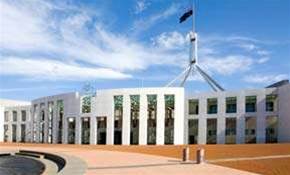A Senate Committee majority report has concluded the present system of classifying content needs substantial reform.

The committee regarded the need for approval between Federal and State governments as obstructing the objective of a uniform consistent national classification scheme.
It recommended that the Australian Government take a leadership role through the Standing Committee of Attorneys-General and legislate for a “truly national classification scheme” or - as a fallback option - explore consitutional options to extend Canberra's power to get the job done.
Committee chairman Senator Guy Barnett declared his report a “landmark” in offering reforms to the national classification scheme but it was hobbled by the dissent of Government Senators on the Committee.
Senators Trish Crossin and Mark Furner agreed with only three three of its 30 recommendations which were mainly of a procedural nature.
Decision-making
The Committee majority report appeared to back evidence and submissions from conservative associations such as the Australian Christian Lobby and Family Voice, which argued that some classification decisions were too lax.
The report urged artistic merit and context be removed from decisions to classify whether published content should be accessible to the public.
The penetration of smartphones and the internet meant that "adult" content was more accessible to minors generally.
The majority also recommended that classification take into account community concerns about the sexualisation of society and the objectification of women.
The report called for the establishment of “standing Community Assessment Panels” to assist in determining community standards for the purpose of classification decision-making.
The internet vector
While content classification should be uniform across all media, including the internet, the scale and borderless nature of the internet prevented even the majority of the members from making specific findings on this issue.
The committee urged that the classification of online content be investigated further by the forthcoming inquiries of the Australian Law Reform Commission and the Convergence Committee due to report next year.




_(23).jpg&h=140&w=231&c=1&s=0)
_(20).jpg&h=140&w=231&c=1&s=0)





 iTnews Benchmark Awards 2026
iTnews Benchmark Awards 2026
 iTnews Executive Retreat - Security Leaders Edition
iTnews Executive Retreat - Security Leaders Edition
 iTnews Cloud Covered Breakfast Summit
iTnews Cloud Covered Breakfast Summit
 The 2026 iAwards
The 2026 iAwards












_(1).jpg&h=140&w=231&c=1&s=0)



